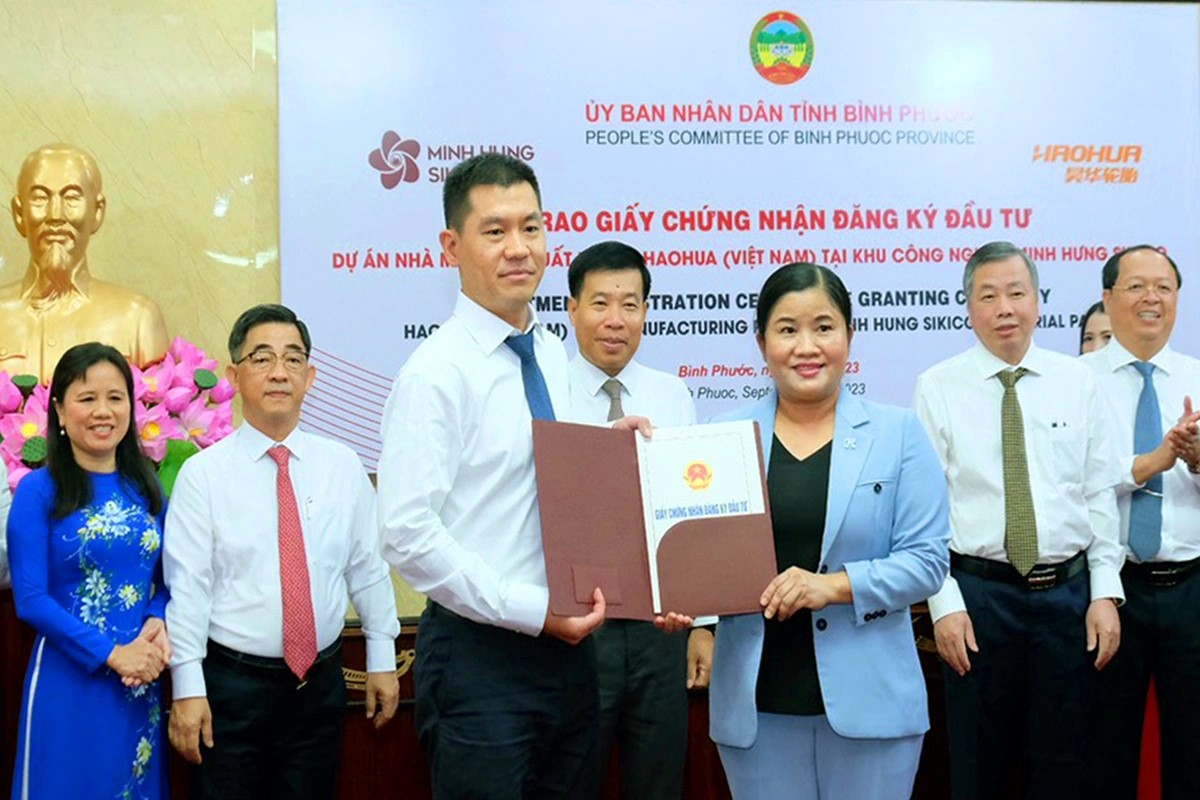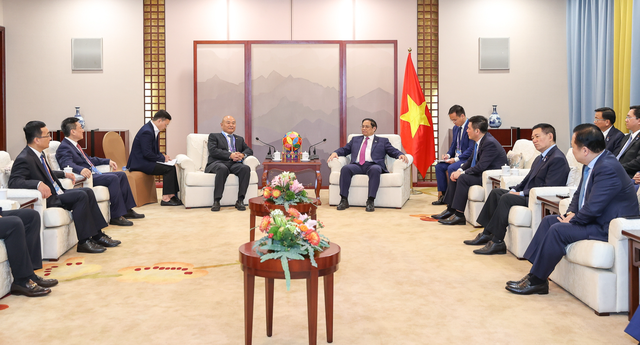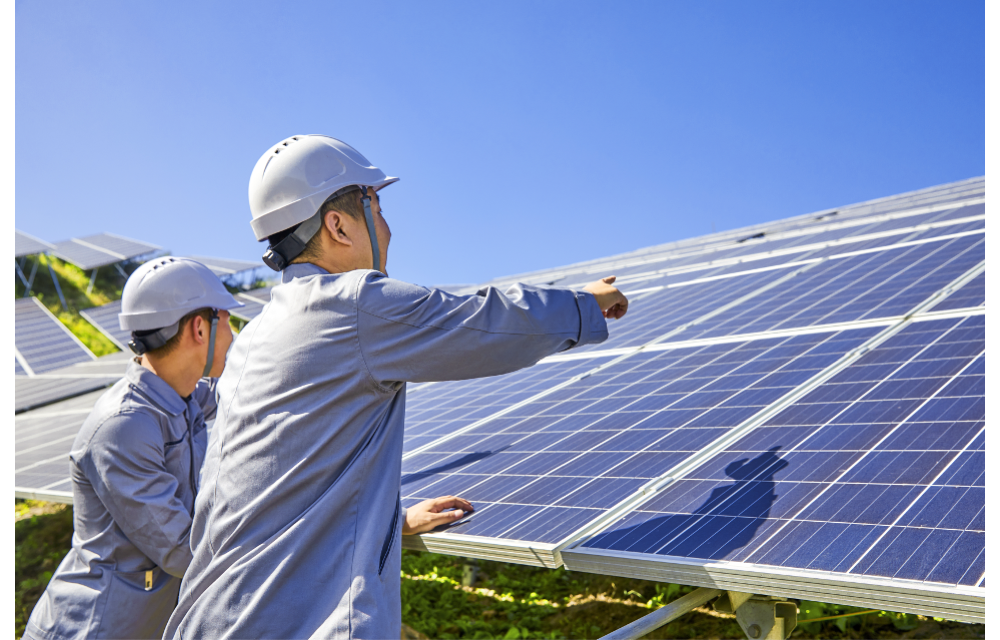Chinese activity a strong part of enhancing investment
How do you see the climb of Chinese groups in Vietnam’s foreign direct investment ranking?
 |
| Seck Yee Chung, partner at Baker McKenzie Vietnam |
It’s encouraging to see Chinese investors climbing the ranks in Vietnam. Chinese investment in the country is concentrated in the manufacturing sector, particularly electronics, textiles and footwear. These investments reflect the broader trend of shifts in the supply chain and manufacturing operations away from China and into Southeast Asian countries. This is driven in part by geopolitical dynamics and global trade rules among major markets being reformed.
Geographically, Vietnam’s strategic location has been a gateway to Southeast Asia, making it an attractive choice for Chinese investors looking to tap into the growing consumer markets in the region. The relative ease of access to other ASEAN countries is also a significant advantage in this regard.
Furthermore, Vietnam has been pursuing a very proactive approach to attracting foreign funding, offering favourable policies, incentives, and a relatively open and continuously modernising business environment.
The increase in Chinese investment positively impacts Vietnam’s economy by helping to create jobs, boost economic growth, and improve the standard of living for people. With this climb in foreign investment ranking, Vietnam will also ensure that Chinese investment aligns with its long-term economic goals, adhere to environmental standards, and create sustainable and high-quality jobs.
Could you share the industries Chinese investors are keen on when it comes to Vietnam?
Chinese investors are diversifying their interests across various sectors in Vietnam. For example, Chinese tech giants are exploring partnerships in Vietnamese tech startups and e-commerce platforms, contributing to the digital economy of the country.
Elsewhere, Vietnam’s commitment to renewable energy has drawn Chinese investments into wind and solar energy projects. This aligns with Vietnam’s goal of increasing clean energy production.
The next area is infrastructure. China has expertise in infrastructure projects, and Chinese investors are keen on participating in Vietnam’s infrastructure development, including highways, bridges and ports.
Manufacturing, including textiles and footwear, is yet another aspect. Vietnam is a major hub for textiles and footwear manufacturing, and Chinese companies are investing heavily in this sector in Vietnam.
Lastly is real estate. Chinese investors are attracted to Vietnam’s real estate market, particularly in major cities like Ho Chi Minh City and Hanoi. They put money into commercial and residential properties and mixed-use developments.
This offers opportunities for economic growth and collaboration. At the same time, Vietnam should continue to develop regulatory frameworks to manage these investments effectively and in line with the nation’s development objectives.
What are the pros and cons of the wave of Chinese investment inflows into Vietnam?
With the climb of Chinese investment into Vietnam, the first and most significant opportunity would be economic growth. The development contributes to Vietnam’s growth, creates jobs, and stimulates industries. Tech transfer would also be a field to pay attention to, as Chinese companies’ advanced technologies and expertise will foster innovation in various sectors here.
Along with that, investments in infrastructure and supply chain will enhance logistics and connectivity, as well as trade and development, bringing Vietnam closer to becoming an integral part of the global supply chain.
As Vietnam’s most established international law firm, we have been helping Chinese and foreign companies investing in Vietnam for three decades. Our experience tells us that Chinese and foreign investors need to be familiarised with regulations here related to environmental protection and labour rights, among other requirements governing foreign investments.
If Vietnam continues on its course in effectively managing the opportunities and challenges associated with foreign funding, this will ensure balanced and sustainable development that benefits Vietnam’s economy and also foreign investors.
What are your recommendations for Vietnam to improve the quality of its foreign investment inflows, including those that stem from China?
Enhancing the quality of all foreign investments should be a continuous effort. Firstly, the Vietnamese government should ensure that only high-quality foreign projects are approved.
For large-scale projects, this can be achieved by appraising the capability of the foreign investors and/or putting in place a bidding/tendering process.
Secondly, comprehensive regulations for foreign funding should address issues such as licensing, foreign exchange, environmental protection, research and development, and labour. The published information about foreign ventures and improving oversight of foreign investment will help to ensure that foreign financiers comply with Vietnamese laws and regulations.
The third aspect is to facilitate incentives for high-quality foreign investment. Good incentives can attract high-quality money, and the government is working on many incentives for investors to draw in foreign funding. Some of these include tax-related incentives, land and water surface rent exemptions, custom duty exceptions, and capital incentives to provide foreign investors with access to funding.
 | China's Haohua to build a $500-million tyre factory in Binh Phuoc On September 11, China’s Shandong Haohua Tire was awarded an investment registration certificate to build a $500-million tyre factory in the southern province of Binh Phuoc. |
 | Chinese rail and power giants seek major investment in Vietnam's infrastructure China Railway Construction Corporation and PowerChina about show strong interest in joining Vietnam's infrastructure endeavours, especially the proposed Lao Cai - Hanoi - Haiphong railway project. |
 | Energy China eyes expansion in Vietnam with increased investment in renewable projects Energy China, a Fortune 500 energy conglomerate, has unveiled plans to expand its investments in Vietnam. |
What the stars mean:
★ Poor ★ ★ Promising ★★★ Good ★★★★ Very good ★★★★★ Exceptional
Related Contents
Latest News
More News
- SK Innovation-led consortium wins $2.3 billion LNG project in Nghe An (February 25, 2026 | 07:56)
- THACO opens $70 million manufacturing complex in Danang (February 25, 2026 | 07:54)
- Phu Quoc International Airport expansion approved to meet rising demand (February 24, 2026 | 10:00)
- Bac Giang International Logistics Centre faces land clearance barrier (February 24, 2026 | 08:00)
- Bright prospects abound in European investment (February 19, 2026 | 20:27)
- Internal strengths attest to commitment to progress (February 19, 2026 | 20:13)
- Vietnam, New Zealand seek level-up in ties (February 19, 2026 | 18:06)
- Untapped potential in relations with Indonesia (February 19, 2026 | 17:56)
- German strengths match Vietnamese aspirations (February 19, 2026 | 17:40)
- Kim Long Motor and AOJ Suzhou enter strategic partnership (February 16, 2026 | 13:27)

 Tag:
Tag:




















 Mobile Version
Mobile Version